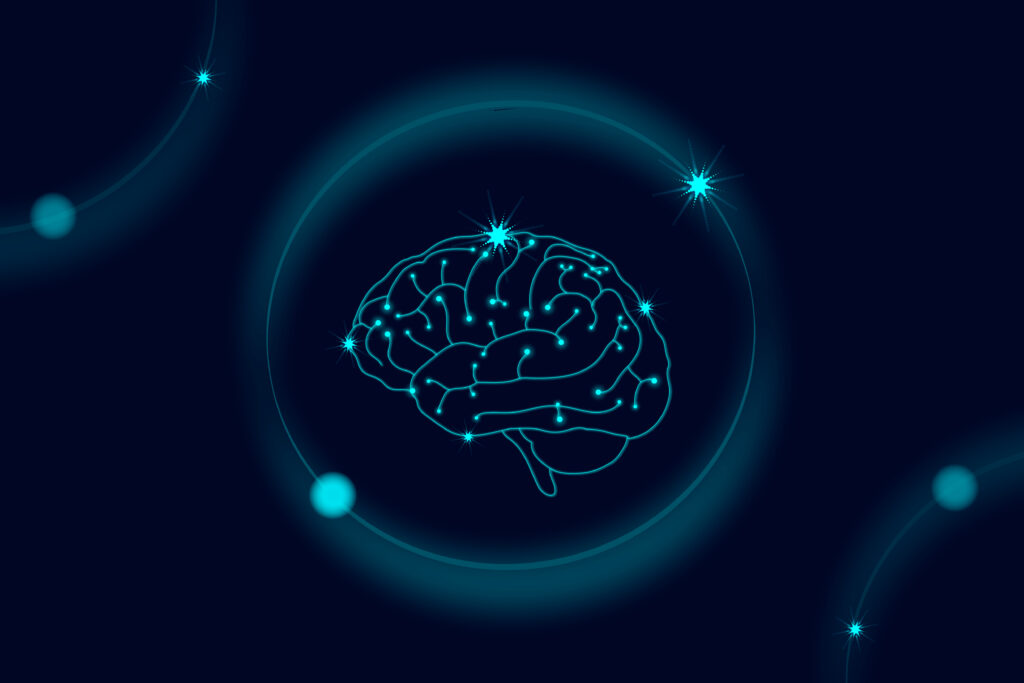HOW LONG TO REWIRE BRAIN FROM ADDICTION.The length of time it takes to rewire the brain after addiction varies from person to person and depends on several factors, such as the duration and severity of the addiction, the individual’s overall health, and the type of treatment being used. However, studies suggest that it can take at least 90 days of consistent effort to create new neural pathways and reduce the power of old ones.
for this we will have to have a close look at the knowing addiction.
What is the definition of addiction and its impact on the brain?
Addiction is one of the chronic disease that affects reward system of the brain, motivation, and decision-making processes generated by it. It is characterized by compulsive and restricted drug or substance use despite harmful consequences, and it generally leads to significant physical, psychological, and social problems.
When a person consumes drugs regularly or engages in such addictive behaviours, it triggers a release of dopamine, a neurotransmitter that generates the eternal feelings of pleasure and reward. Gradually,The repeated use of drugs or addictive behaviours can lead to changes in the reward circuitry and other neural pathways of the brain.

Over time through the continuous use, the brain respond less to the same level of dopamine release, and the person may needs higher doses of drugs or more intense addictive behaviors to achieve the same results. This is called as tolerance, and it can lead to a vicious cycle of addiction which may become difficult to break.
Additionally, addiction may also lead to changes in some other areas of the brain, including the prefrontal cortex, which ismost importantly responsible for any decision-making, impulse control, and judgment. This can lead to impaired cognitive function, difficulty regulating emotions, and a decreased ability to resist drug cravings or addictive behaviors.
Overall, addiction can have a significant impact on the brain, leading to long-lasting changes in neural circuitry and a persistent risk of relapse. However, with the right treatment and support, it is possible to reverse the damage caused by addiction and promote brain rewiring and recovery.
Importance of rewiring the brain for addiction recovery:lets know how long to rewire brain from addiction
Rewiring the brain is essential for addiction recovery because addiction affects the brain’s reward system and neural pathways. The changes in brains that occur as a result of addiction can make it challenging to stop using drugs or engaging in addictive behaviours, which in turn also increase the risk of relapse.
The concept of Rewiring the brain involves changing the neural pathways and the way the brain functions, which can help to break the cycle of addiction and improves the chances of long-term recovery. The process of rewiring the brain involves creating new neural connections and strengthening existing ones, which can help to reverse the damage caused by addiction and promote healthier ways of thinking and behaving in life.
The importance of rewiring the brain for addiction recovery is underscored by research that has shown that addiction is a treatable disease, and recovery is possible with the right treatment and support .This may include yoga and meditation. By rewiring the brain, individuals in recovery can develop new coping mechanisms and skills to manage cravings and triggers, reduce the risk of relapse, and improve their overall quality of life.
Additionally, rewiring the brain can help individuals in recovery to regain control over their thoughts, emotions, and behaviors, which can be particularly important for those who have struggled with addiction for a long time. By developing new habits and thought patterns, individuals in recovery can reduce the risk of returning to old patterns of behavior and improve their overall mental health and well-being.
So, the conclusion is, rewiring of brain is a critical aspect of addiction recovery. It helps individuals to break the cycle of addiction, reduce the risk of relapse, and improve their overall quality of life. With the right treatment and support, the person in need can develop the skills and coping mechanisms needed to rewire their brains and achieve lasting recovery from addiction.
The science of addiction and brain rewiring
To know the answer to how long to rewire brain from addiction we should also focus on the root cause and the factor that :
How addiction affects the brain’s reward system and neural pathways
Addiction hijacks the normal functioning of the brain’s neural pathways that are involved in the stimulation of pleasure, motivation, and decision-making.
When a person uses drugs or engages in addictive behaviors, it triggers a release of dopamine, a neurotransmitter that is responsible for feelings of joy and pride. This dopamine stimulation occurs in the brain’s reward center, which includes the ventral tegmental area (VTA), nucleus accumbens, and prefrontal cortex. The release of dopamine gives signals to the brain, that the behaviour is pleasurable and reinforces the desire to repeat it.
However, gradually with habit of drug use or addictive behaviours, the brain adapts to the constant influx of dopamine by reducing the number of dopamine receptors or decreasing the amount of dopamine released. This results in a decrease in the ability of the brain to experience pleasure, and the individual may need to take more of the drug or engage in more intense addictive behaviours to achieve the same level of pleasure.
The brain’s neural pathways are also affected by addiction. These pathways are the circuits that connect different regions of the brain and are responsible for the regulation of emotions, cognition, and nature. With repeated drug use or addictive conducts, the neural pathways are reinforced, making it more likely for the individual to engage in the addictive habits.
Additionally, obsession of drugs might create changes in other areas of the brain, including the prefrontal cortex, which is responsible for decision-making, impulse control, and judgment. This can lead to impaired cognitive function, difficulty regulating emotions, and a less ability to resist drug cravings or addictive behaviors.
Overall, this obsession affects the brain’s reward system and neural pathways in a way that reinforces the addictive behavior and makes it difficult to stop using drugs or engaging in addictive behaviors. However, with the right treatment and support, it is possible to reverse the damage caused by addiction and promote brain rewiring and recovery.

Description of the brain’s ability to change and adapt through neuroplasticity
Neuroplasticity and Recovery from Brain Injuries and Diseases:
Brain adaptability is likewise urgent for recuperation from cerebrum wounds and sicknesses. At the point when the cerebrum is harmed, for example, on account of a stroke or horrible mind injury, brain adaptability permits the cerebrum to rearrange and shape new brain associations with make up for the harmed regions.
Likewise, brain adaptability assumes a urgent part in recuperation from neurodegenerative illnesses like Alzheimer’s and Parkinson’s. While there is as of now no remedy for these infections, research has demonstrated the way that brain adaptability can dial back the movement of the sickness and work on mental capability.
how rewiring the brain can reverse the damage caused by addiction

Rewiring the brain through neuroplasticity has been shown to reverse some of the damage caused by addiction. Addiction is a chronic disease that affects the brain’s reward system and can cause long-term changes in neural pathways, leading to compulsive drug-seeking behaviors and a lack of control over substance use. These changes can be difficult to reverse, but with the help of rewiring techniques, it is possible to reverse some of the damage and recover from addiction.
One way that rewiring the brain can reverse the damage caused by addiction is through the formation of new neural pathways. The brain has the ability to create new neural connections in response to new experiences, and this process is known as neuroplasticity. By engaging in activities that promote neuroplasticity, such as cognitive-behavioral therapy (CBT), meditation, and mindfulness practices, individuals can create new pathways that bypass the damaged ones caused by addiction.
Another way that rewiring the brain can help reverse the damage caused by addiction is by reducing the strength of old neural pathways. Addiction is often characterized by strong associations between drug use and certain triggers, such as people, places, and things. By using techniques such as exposure therapy, individuals can gradually reduce the power of these associations, making it easier to resist cravings and avoid relapse.
Additionally, rewiring the brain can help reverse some of the negative emotional effects caused by addiction. Chronic substance use can lead to depression, anxiety, and other mental health disorders, which can be difficult to treat without addressing the underlying addiction. By engaging in techniques that promote neuroplasticity, individuals can improve their emotional resilience and develop new coping strategies to deal with negative emotions.
In conclusion, rewiring the brain through neuroplasticity can be a powerful tool in reversing the damage caused by addiction. By creating new neural pathways, reducing the power of old ones, and improving emotional resilience, individuals can overcome addiction and achieve long-term recovery. While the process of rewiring the brain can be challenging, with the right tools and support, it is possible to reverse the damage caused by addiction and live a fulfilling life in recovery.
So, neuroplasticity is a crucial aspect of brain development, learning, memory, and recovery from brain injuries and diseases. The brain’s ability to change and adapt through neuroplasticity is a testament to the brain’s incredible flexibility and resilience. By understanding the mechanisms of neuroplasticity, we can better appreciate the brain’s remarkable ability to change and adapt throughout our lives.
FAQs:
How long does it take to rewire the brain after addiction?
The length of time it takes to rewire the brain after addiction varies from person to person and depends on several factors, such as the duration and severity of the addiction, the individual’s overall health, and the type of treatment being used. However, studies suggest that it can take at least 90 days of consistent effort to create new neural pathways and reduce the power of old ones.
Can you completely reverse the damage caused by addiction?
While it is possible to reverse some of the damage caused by addiction through neuroplasticity, it may not be possible to completely reverse all the damage. The extent of the damage and the individual’s overall health and treatment can affect the outcome.
What types of therapy promote neuroplasticity?
Several types of therapy promote neuroplasticity, including cognitive-behavioral therapy (CBT), mindfulness-based cognitive therapy (MBCT), exposure therapy, and eye movement desensitization and reprocessing (EMDR).
Can medication be used to rewire the brain after addiction?
Medication can be used to support the rewiring process after addiction, but it is not a standalone treatment. Medication can help manage withdrawal symptoms and cravings, but behavioural therapy and other techniques that promote neuroplasticity are essential for long-term recovery.
Is it possible to relapse after rewiring the brain?
While rewiring the brain through neuroplasticity can be a powerful tool in overcoming addiction, it is still possible to relapse. Ongoing support, therapy, and self-care practices are essential for maintaining recovery and avoiding relapse.


Comments are closed.